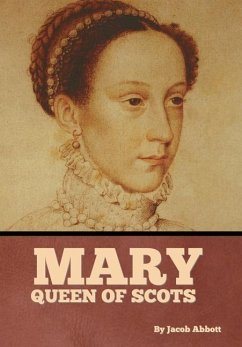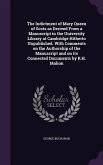Preface The history of the life of every individual who has, for any reason, attracted extensively the attention of mankind, has been written in a great variety of ways by a multitude of authors, and persons sometimes wonder why we should have so many different accounts of the same thing. The reason is, that each one of these accounts is intended for a different set of readers, who read with ideas and purposes widely dissimilar from each other. Among the twenty millions of people in the United States, there are perhaps two millions, between the ages of fifteen and twenty-five, who wish to become acquainted, in general, with the leading events in the history of the Old World, and of ancient times, but who, coming upon the stage in this land and at this period, have ideas and conceptions so widely different from those of other nations and of other times, that a mere republication of existing accounts is not what they require. The story must be told expressly for them. The things that are to be explained, the points that are to be brought out, the comparative degree of prominence to be given to the various particulars, will all be different, on account of the difference in the situation, the ideas, and the objects of these new readers, compared with those of the various other classes of readers which former authors have had in view. It is for this reason, and with this view, that the present series of historical narratives is presented to the public. The author, having had some opportunity to become acquainted with the position, the ideas, and the intellectual wants of those whom he addresses, presents the result of his labors to them, with the hope that it may be found successful in accomplishing its design. About the author Jacob Abbott (November 14, 1803 - October 31, 1879) was an American writer of children's books. On November 14, 1803, Abbott was born in Hallowell, Maine to Jacob Abbott II and Betsey Chandler. He attended the Hallowell Academy. Abbott graduated from Bowdoin College in 1820. At some point during his years there, he supposedly added the second "t" to his surname, to avoid being "Jacob Abbot the 3rd" (although one source notes he did not actually begin signing his name with two t's until several years later). Abbott studied at Andover Theological Seminary in 1821, 1822, and 1824. He taught in Portland academy and was tutor in Amherst College during the next year. From 1825 to 1829 Abbott was professor of mathematics and natural philosophy at Amherst College; was licensed to preach by the Hampshire Association in 1826; founded the Mount Vernon School for Young Ladies in Boston in 1829, and was principal of it in 1829-1833; was pastor of Eliot Congregational Church (which he founded), at Roxbury, Massachusetts in 1834-1835; and was, with his brothers, a founder, and in 1843-1851 a principal of Abbott's Institute, and in 1845-1848 of the Mount Vernon School for Boys, in New York City. He was a prolific author, writing juvenile fiction, brief histories, biographies, religious books for the general reader, and a few works in popular science. He wrote 180 books and was a coauthor or editor of 31 more. He died in Farmington, Maine, where he had spent part of his time after 1839, and where his brother, Samuel Phillips Abbott, founded the Abbott School. ... (wikipedia.org)
Hinweis: Dieser Artikel kann nur an eine deutsche Lieferadresse ausgeliefert werden.
Hinweis: Dieser Artikel kann nur an eine deutsche Lieferadresse ausgeliefert werden.








